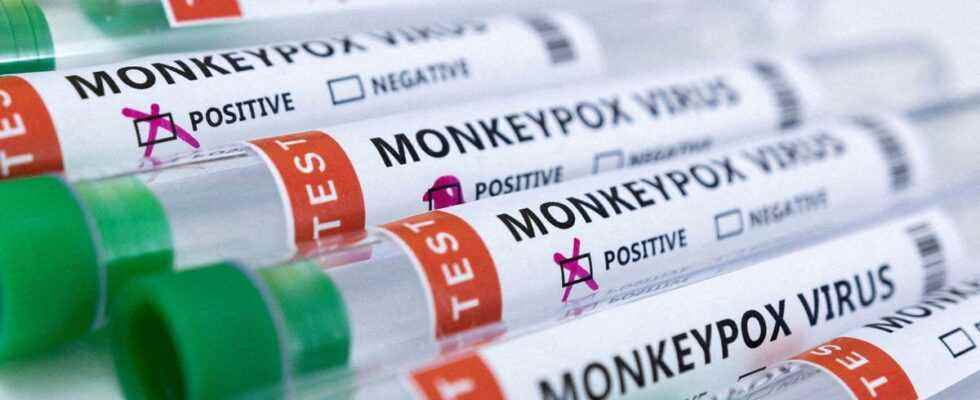The European Commission announced on Monday July 18 the purchase of 54,530 additional doses of the vaccine against monkeypox under its contract with the Danish laboratory Bavarian Nordic, worrying about an increase in cases of “almost 50%in the EU within a week. The number of doses purchased on behalf of European countries now stands at 163,620, the European executive said in a press release.
European Commissioner for Health Stella Kyriakides said to herself “concerned about the increasing number of cases of monkeypox in the EU“. “We now have over 7,000 cases in the EU, an increase of almost 50% since last week“, according to her. Europe is the region of the world most affected by monkeypox.
Delivery of approximately 25,000 doses
According to figures from the European Center for Disease Prevention and Control (ECDC) as of July 14, 7,128 confirmed cases have been listed in the EU, mainly in Spain (2,477), Germany (1,790) and France (912). “We reacted swiftly and ensured a rapid response through the new European Health Emergency Preparedness and Response Authority (HERA), and already delivered around 25,000 doses to six Member States“, recalled the European commissioner. Spain received 5,300 doses of vaccine, as did Germany and Italy, Belgium 3,040, Sweden 2,700, as did Portugal, and Ireland 1,400.
Read alsoCovid-19: is the Delta variant as contagious as smallpox?
The Commission specifies that deliveries will continue in the coming months in EU Member States, Norway and Iceland. The WHO Emergency Committee is due to meet on Thursday to determine ways to contain the surge in cases.
Healing after two to three weeks
A distant cousin of human smallpox, but considered far less dangerous, monkeypox usually heals on its own within two or three weeks. It is characterized by rashes – which can appear on the genitals or in the mouth – and can be accompanied by fever, sore throat or pain in the lymph nodes.
Read alsoMonkey pox: US struggles to meet demand for vaccines
The virus can be transmitted by direct contact with lesions on the skin or mucous membranes of a patient, as well as by droplets. “Sexual intercourse (…) meets these conditions for contamination, and having several partners increases the risk of being exposed to the virus“, recalls Public Health France. If in the overwhelming majority of European and American cases the patients are men who have had sex with men, they are not the only ones concerned, some cases having also been detected in children and immunocompromised people.
